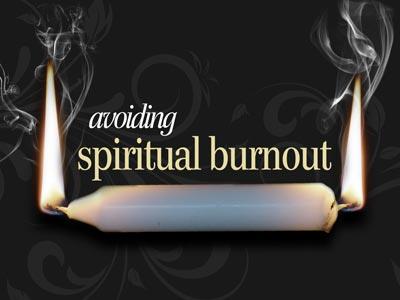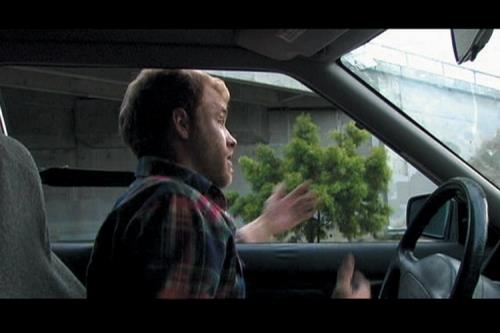-
There Is Hope In Life's Darkest Hour
Contributed by John Knight on Nov 28, 2017 (message contributor)
Summary: A word to those in grief, and to those who know someone who is.
There Is Hope In Life’s Darkest Hour
Luke 7:11-17
Introduction: Funeral customs ( Http://library.thinkquest.org/16665/burialframe.htm.)
Egypt-bodies were mummified with spices, herbs, and chemicals.
Maoris (New Zealand)-bodies are burned in huts which are locals for elaborate celebrations.
Australia-the Aboriginals left dead bodies in trees.
Parsees-of Bombay, India used to leave their dead on top of towers to be eaten by vultures.
Mexico-the dead are commemorated in special "Days of the Dead". Offerings are made to the deceased, and survivors visit grave sites, sitting on them in celebration of life. Some arrange elaborate flower ornaments. While others yet place an extra set at the table for dead loved ones with special food cooked. There’s a joke about the event that tells of two people visiting a cemetery, one putting flowers by a grave and the other putting food near one. "When is your dead one going to come up to eat the food?" asks the first person. "When yours comes up to smell the flowers," replies the second.
Setting
I. Emptiness
A. Cultural Distinctions
1. Women- Socially unequal with men. Less than men, but more than a slave. "All the hard work at home certainly fell to her; she looked after the flocks, worked in the fields, cooked the food, did the spinning, and so on. All this apparent drudgery, however, far from lowering her status, earned her consideration."
(de Vaux, Roland. Ancient Israel: Two Volumes, Volume 1: Social Institutions. (McGraw-Hill, New York, 1965). p. 39.)
Not much has changed in 2000 years. Today women still: cook meals, grocery shop, care for children-cleaning, PTA, get oil changed in the car, clean house, laundry, etc.
The Jewish Law "commanded equal honour to be given to father and mother. The Wisdom books insist on the respect due to ones mother."
(Ibid., p. 40.)
As for family life "an Israelite wife was loved and listened to by her husband, and treated by him as an equal."
(Ibid.)
* A woman’s worth lay in that of her husband-she was the wife of so and so. She may have been the wind in his sails, but he was still in the forefront. Without the husband she became no more than a blowing wind.
Upon the death of ones husband a women fell in position. "Widows, especially those with children to support, were in a piteous condition. They were ... commended to the charity of the people."
(Ibid.)
B. Naomi’s Story (The Book of Ruth)
Ruth 1:1-5 Ruth-daughter-in-law to Naomi
Naomi-wife of a farmer, Elimelech
Suffered drought=loss of a job
Oil market, tech market, etc.
Moved family elsewhere
Naomi-husband dies, sons die
*financial flow has been disrupted
*no inheritance, no Social Security, no Mutual Funds, no Money Market accounts, bonds, stocks, or IRA’s.
*living empty handed and alone
*returns home- the only place she can go; to live off of the generous handouts of her family- to survive by the grain Ruth brings home.
Leviticus 19:9-20 "When you harvest your crops, do not harvest the grain along the edges of your fields, and do not pick up what the harvesters drop. It is the same with your grape crop—do not strip every last bunch of grapes from the vines, and do not pick up the grapes that fall to the ground. Leave them for the poor and the foreigners who live among you, for I, the Lord, am your God."
( Holy Bible, New Living Translation, (Wheaton, IL: Tyndale House Publishers, Inc.) 1996. (cf. Leviticus 23:22.)
Deuteronomy 24:19 "When you are harvesting your crops and forget to bring in a bundle of grain from your field, don’t go back to get it. Leave it for the foreigners, orphans, and widows. Then the Lord your God will bless you in all you do."
(Ibid.)
II. The Desperation Of Losing It All
A. Five Stages Of Grief
( Http://www.aomc.org/HOD2/general/stress-THE-3.html. For more information about our services, e-mail us at info@aomc.org Or Call Health On Demand (607) 737-4499 or, (800) 952-AOMC Weekdays 8am to 8pm. © Arnot Ogden Medical Center, 1996 © 1990 by Parlay International Emeryville, CA All rights reserved)
At some point in our lives, each of us faces the loss of someone or something dear to us. The grief that follows such a loss can seem unbearable, but grief is actually a healing process. Grief is the emotional suffering we feel after a loss of some kind. The death of a loved one, loss of a limb, [discovery of a terminal illness, or a disorder such as a parent or spouse developing Alzheimer’s,] even intense disappointment can cause grief Dr. Elisabeth Kubler-Ross has named five stages of grief people go through following a serious loss.
1. Denial & Isolation
2. Anger
3. Bargaining
4. Depression
5. Acceptance
Sometimes people get stuck in one of the first four stages. Their lives can be painful until they move to the fifth stage - acceptance.

 Sermon Central
Sermon Central



